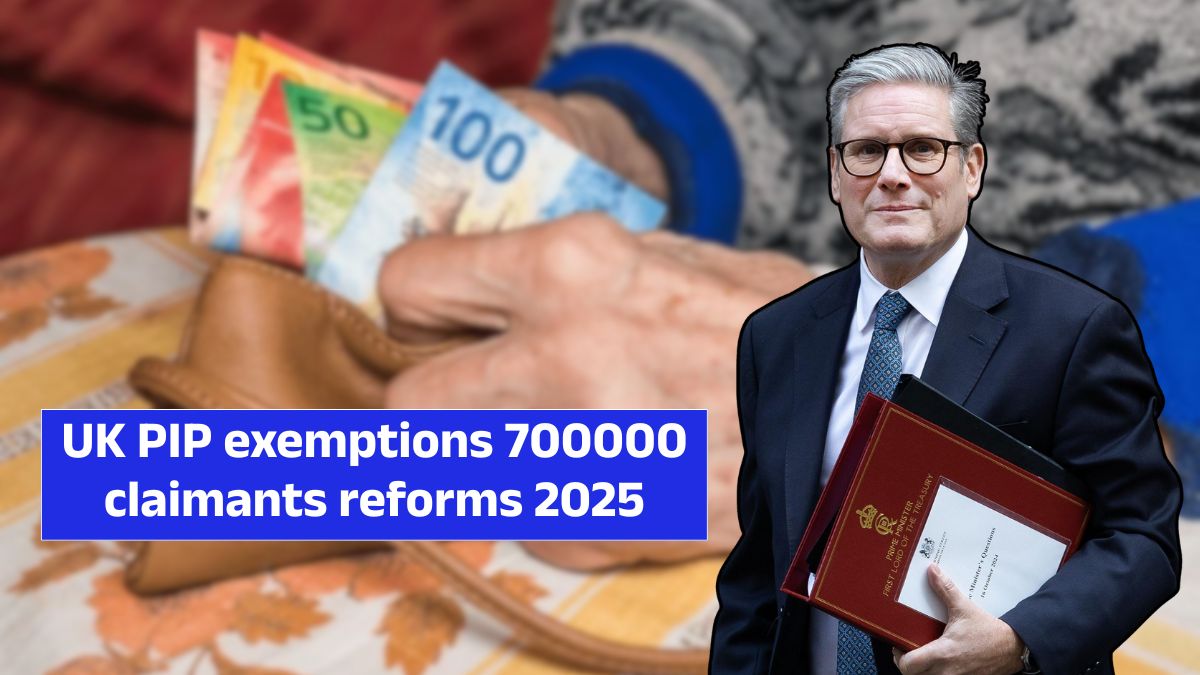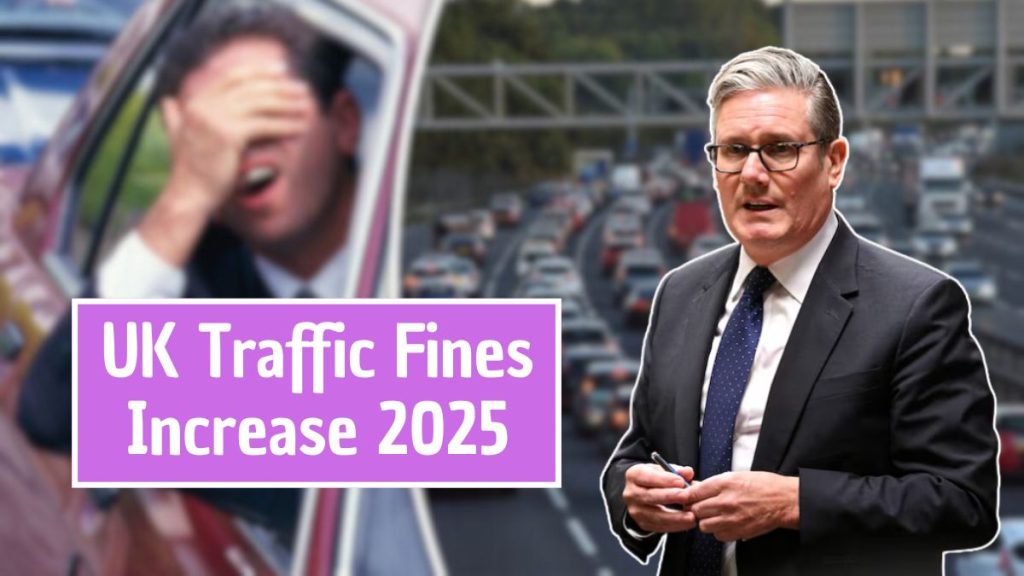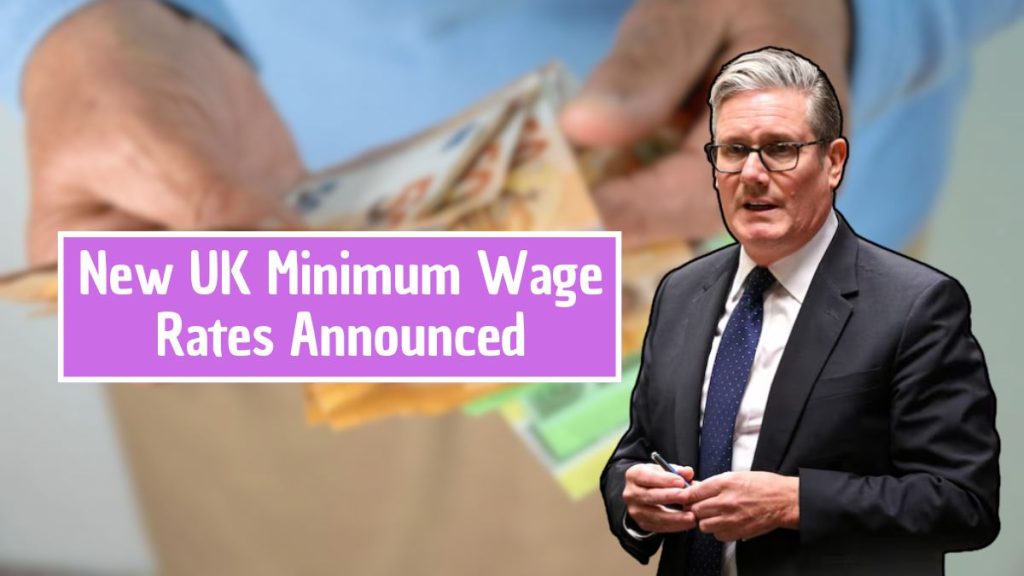The UK government has confirmed a major wage increase under the National Minimum Wage (NMW) and National Living Wage (NLW) frameworks, taking effect from September 2025. The announcement is expected to directly impact millions of workers across the country—particularly those in low-income sectors like retail, care, and hospitality—while prompting businesses to make significant payroll adjustments.
This policy aims to help employees manage rising living costs caused by inflation, rent hikes, and energy bills, while ensuring fair pay standards. However, employers now face the challenge of higher wage bills and stricter compliance requirements.
What Is the Minimum Wage and Living Wage?

The National Minimum Wage (NMW) represents the lowest hourly rate that UK employers can legally pay workers. The National Living Wage (NLW) is a slightly higher rate, applicable to workers aged 21 and over.
These wage levels are reviewed and recommended by the Low Pay Commission (LPC) before being officially implemented by the government. The rules are enforced by HMRC, and employers who fail to comply face heavy financial penalties, back-pay orders, and public naming on official government lists.
Quick Summary – UK Minimum Wage September 2025
| Aspect | Details |
|---|---|
| Announcement | New UK Minimum Wage Rates |
| Effective Date | September 2025 |
| Authority | UK Government / Low Pay Commission |
| National Living Wage (21+) | £11.44 per hour |
| 21–22 Year Olds | £11.44 per hour (now merged with NLW) |
| 18–20 Year Olds | £8.60 per hour |
| 16–17 Year Olds | £6.40 per hour |
| Apprentices | £6.40 per hour |
| Enforcement | HMRC (fines and back pay if underpaid) |
| Official Website | www.gov.uk |
New Wage Rates Effective from September 2025
The following updated wage rates will take effect from 20 September 2025:
- National Living Wage (21+): £11.44 per hour
- 21–22 Year Olds: £11.44 per hour (aligned with NLW)
- 18–20 Year Olds: £8.60 per hour
- 16–17 Year Olds: £6.40 per hour
- Apprentices: £6.40 per hour
This is one of the biggest jumps in hourly pay in recent years, especially for apprentices and young workers who previously earned much less.
How Much More Will Workers Earn in 2025?
The increase translates to a meaningful rise in annual earnings for full-time employees:
- 21-year-old working 37.5 hours weekly: Approximately £22,308 per year
- 18-year-old working 37.5 hours weekly: Around £16,770 per year
- Apprentice working full-time: Roughly £12,480 per year
For part-time and shift workers, the boost means more flexibility and financial stability, particularly for those balancing work with family or education.
Why Is the Wage Increasing?
The wage hike is driven by a combination of economic and social factors:
- Inflation Pressures: The government aims to protect workers from the ongoing cost-of-living crisis.
- Labour Shortages: Sectors like hospitality, retail, and care need better pay to attract and retain workers.
- Fair Work Agenda: The government’s policy focus is to reduce in-work poverty and promote equal pay.
- Economic Growth: Higher wages can stimulate local economies by boosting consumer spending.
Impact on Workers Across the UK
The September 2025 wage rise will benefit millions of UK employees, particularly those in:
- Hospitality and Retail: Large segments of the workforce operate on minimum pay.
- Care and Health Services: Workers in care homes and home assistance roles often earn near or below the NLW.
- Apprenticeships: Higher pay makes vocational training more attractive for young people.
- Part-Time Roles: Students and working parents will enjoy better pay flexibility.
For many households, this could mean extra disposable income for essentials like food, rent, and transportation—offering tangible relief amid persistent inflation.
How Will Employers Be Affected?
For businesses—especially small and medium enterprises (SMEs)—the new wage structure brings both financial pressure and administrative responsibilities.
- Hospitality & Retail: Seasonal and hourly staff will increase payroll expenses significantly.
- Care Providers: May struggle to absorb the higher wage costs without increasing service prices.
- Small Shops & Local Businesses: Could need to cut back hours, adjust staffing, or raise product prices.
Non-compliance can result in fines up to £20,000 per worker, mandatory back pay, and damage to public reputation. Employers are therefore advised to review their payroll systems well in advance of the September rollout.
Regional Living Costs – Is the Increase Enough?
While the wage rise is welcomed nationwide, living costs vary significantly across regions. Campaigners argue that the National Living Wage still falls short of covering real expenses in high-cost areas like London.
- London Living Wage 2025 (Real): £13.15 per hour
- Outside London (Real Living Wage): £12.00 per hour
Although the September 2025 increase narrows the gap, many say it doesn’t yet reflect the true cost of housing, transport, and food in major UK cities.
Apprentices and Young Workers – The Key Winners
The largest percentage increase applies to apprentices and younger workers, narrowing the pay gap and promoting fairness. Aligning the 21–22 age group with the National Living Wage simplifies the system while giving thousands of young people a substantial boost in income.
This adjustment encourages more students to pursue apprenticeships and early career roles, improving youth employment prospects nationwide.
How Does the UK Compare Internationally?
With the 2025 increase, the UK will rank among the highest minimum wage economies in Europe.
| Country | Hourly Rate (Approx.) |
|---|---|
| United Kingdom | £11.44 |
| Germany | €12.41 (~£10.60) |
| France | €11.65 (~£9.90) |
| Spain | €8.45 (~£7.20) |
While this strengthens the UK’s global labour competitiveness, it must also be viewed in the context of the country’s higher living costs compared to its European peers.
Government Enforcement and Employer Responsibilities
The HMRC will continue to lead wage enforcement across the UK, investigating underpayment and imposing penalties where required.
Employers are legally obliged to:
- Pay staff at or above the new minimum rates.
- Keep accurate payroll records for verification.
- Adjust rates immediately once employees move into a higher age category.
Failure to comply will result in back pay orders, fines, and potential public exposure via government websites.
Wider Economic Outlook
Analysts believe the wage increase could have mixed effects on the UK economy:
- Positive Impact: Increased consumer spending, improved worker morale, and reduced income inequality.
- Challenges: Possible price inflation, especially in sectors heavily dependent on low-wage labour.
Overall, the move is seen as a strategic balance between fairness and sustainability, ensuring that workers are better protected while employers remain competitive.
FAQs
1. When does the new UK minimum wage take effect?
The updated wage rates will come into effect from 20 September 2025.
2. What is the new National Living Wage?
From September 2025, the National Living Wage for workers aged 21 and above will be £11.44 per hour.
3. Who enforces the minimum wage rules?
The HMRC is responsible for ensuring employers comply with the wage laws and can impose fines or demand back pay.
4. How will this wage increase affect young workers?
Younger employees and apprentices are among the biggest beneficiaries, with notable rises aimed at reducing the pay gap between age groups.
5. What happens if an employer doesn’t pay the new rate?
Employers who fail to pay the legal minimum wage risk financial penalties up to £20,000 per worker, back-pay requirements, and public naming by the government.
















